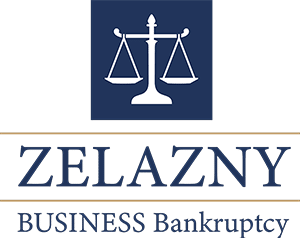Chapter 7 Bankruptcy for Small Businesses
If you own a small business that is facing debt problems, Chapter 7 bankruptcy may be your solution. Filing for Chapter 7 is an effective debt liquidation tool used by both individuals and businesses with more debt than they can manage. Eliminating most (if not all) of your small business debts can give you a fresh start. Not all businesses will benefit from a Chapter 7 bankruptcy, however, so it is best to receive qualified legal and financial guidance before moving forward with this option. If you’d like to schedule a consultation with our bankruptcy attorney, contact us today.
Get the help you need
For three decades, Zelazny Business Bankruptcy has helped small businesses throughout the Chicago area with debt problems, IRS issues and other unique financial issues that often arise during business operations. Eric Zelazny is a lawyer and CPA with extensive experience and knowledge about the financial and legal issues businesses encounter when they run into debt problems. Zelazny Business Bankruptcy delivers highly personalized service, offering free consultations, and meeting you wherever is most convenient to go over your financial situation and help craft the best solution to meet your needs.
When does a business benefit from Chapter 7 Bankruptcy?
Small business owners can use Chapter 7 of the federal bankruptcy code to eliminate most debts incurred by the business. The entity structure of your business will help determine if it will be a personal or business Chapter 7 bankruptcy.
- Sole Proprietorship: A sole proprietorship is not a separate legal entity. As a result, all business income, assets, and debts belong to the individual owner. Therefore, if you have a sole proprietorship with debt problems, this would need to be filed as a personal Chapter 7 Bankruptcy.
- Partnerships, Limited Liability Companies (LLCs) and Corporations: These separate legal entities can qualify for a Chapter 7 business bankruptcy. Using this option, the assets belonging to the entity would be liquidated to pay off its creditors. If there are any remaining debts the owner(s) cosigned or personally guaranteed, they would be personally liable to pay these debts. In addition, there is no discharge in business bankruptcy, so upon filing, the business would be closed by the trustee. Chapter 7 makes sense if you are shutting down the business and want to eliminate its debts. If you plan to continue operating the business, however, Chapter 11 Business Reorganization might be a better option.
If you have a small business with a high amount of debt you can no longer manage, contact us today at 708-888-2299 to schedule your free no obligation consultation. Bankruptcy attorney Eric Zelazny will take the time to meet with you to answer your questions, examine your finances, and help chart the best course to resolve your financial issues. After the free initial consultation, you will know if Chapter 7 Debt Liquidation is a good option for your business.
